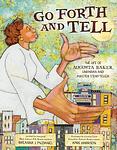Yasunari Kawabata
Yasunari Kawabata was a prominent Japanese novelist and short story writer who won the Nobel Prize in Literature in 1968. He is best known for his delicate prose and narratives that often explore themes of loneliness and the fleeting nature of beauty and life. Some of his most famous works include 'Snow Country', 'Thousand Cranes', and 'The Sound of the Mountain'. Kawabata's writing style is characterized by its lyrical and sparse elegance, deeply rooted in Japanese aesthetics and sensibility.
Books
This list of books are ONLY the books that have been ranked on the lists that are aggregated on this site. This is not a comprehensive list of all books by this author.
-
1. Snow Country
"Snow Country" is a poignant tale of a tragic love affair between a wealthy city-dweller and a provincial geisha. Set in a remote hot-spring town in the snowy Japanese mountains, the story explores the depth of human emotions, loneliness, and the ephemeral nature of beauty and love. The narrative is filled with vivid imagery and symbolism, reflecting the melancholic and transient beauty of the snow country, and the inevitable fate of the characters.
-
2. Thousand Cranes
"Thousand Cranes" is a story set in post-war Japan, revolving around the life of a young man who is entangled in a complex relationship with three women. These women are linked to his deceased father and a shared tea ceremony set, symbolizing the cultural and generational tensions that exist. The narrative explores themes of love, loneliness, tradition, and the haunting burden of the past.
-
3. The Sound of the Mountain
The novel centers around an aging businessman who, upon hearing nightly sounds from the nearby mountain, begins to confront his own mortality and the complexities within his family. As he navigates his strained relationship with his wife, his adulterous son, and his daughter-in-law whom he harbors feelings for, he experiences a profound sense of solitude and existential dread. The narrative subtly explores themes of aging, alienation, and the ephemeral nature of life.
-
4. Beauty and Sadness
A renowned novelist in Tokyo is drawn back into the life of his first love, Otoko, who he had a passionate affair with when she was just 15. Now a successful painter, she lives with a young woman named Keiko, who is deeply devoted to her. As the novelist becomes entangled in their lives once again, a complex web of love, jealousy, and resentment unfolds. The novel is a poignant exploration of the enduring themes of memory, love, and loss.
-
5. The Dancing Girl of Izu and Other Stories
"The Dancing Girl of Izu and Other Stories" is a collection of short narratives that explore the intricacies of human relationships, set against the backdrop of Japan's cultural and natural landscapes. The titular story follows a young student who becomes infatuated with a traveling dancer he meets while on a trip to the Izu Peninsula. The other stories also delve into themes of love, loss, and longing, with characters often grappling with their own emotions and the societal norms of the time. The book is renowned for its lyrical prose and delicate depiction of human emotions.
-
6. The Master Of Go
The book is a thoughtful reflection on the changing face of Japanese culture, told through the lens of a professional Go match between an aging master, representing the old guard and traditional values, and his young, innovative challenger who embodies the new ways. As the intense match unfolds, it becomes more than just a game; it is a poignant exploration of tradition versus progress, the individual versus society, and the tension between the spiritual purity of the art and the commercialism of modern times. The narrative, based on a real-life event, delves deep into the psychology of its characters and the strategic intricacies of Go, offering a subtle yet profound meditation on the nature of competition and the end of an era.





